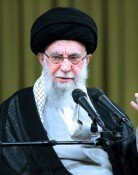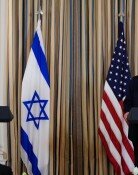Transfer of Wartime Command Should Be Delayed
Transfer of Wartime Command Should Be Delayed
Posted May. 27, 2009 09:02,
The head of the Korea Retired Generals and Admirals Association in Seoul yesterday urged a delay in the transfer of wartime operational command from the United States to South Korea in the wake of North Koreas nuclear test and missile launches.
Lee Jong-gu warned that if Seoul takes over the command from Washington and abolishes the Combined Forces Command amid heightened threats from North Korea, it will threaten national security.
The leaders of the United States and South Korea should discuss how to postpone the transfer of wartime operational command at the bilateral summit next month, he said.
The following is excerpts from a Dong-A Ilbo interview with Lee.
Dong-A: After North Koreas second nuclear test, politicians say the transfer of wartime operational command should be postponed.
Lee: It is hard to predict North Koreas moves. The Stalinist country is also likely to continue its brinkmanship strategy with its nuclear program. That means its nuclear threat will increase. Moreover, Pyongyang has continuously bolstered its special forces and missile capability, but Seoul has not strengthened its military. Is it appropriate to stick to the planned transfer of wartime operational command? To keep North Korea in check, a strong military alliance between the U.S. and South Korea is needed.
Dong-A: Should South Korea assume wartime operational command at a time when the nuclear crisis is heightening?
Lee: We must consider when, not under what conditions, when dealing with the transfer of wartime operational command. North Korea is highly unlikely to abandon its nuclear weapons and South Korea is not expected to equip itself with a military strong enough to deter North Koreas provocations by 2012. It is unreasonable to set a deadline for the transfer of wartime operational command, which is directly related to South Koreas security, when North Korea is heightening its nuclear threat.
Dong-A: Is a delay in the transfer of wartime operational command impossible since Seoul and Washington have already agreed on it?
Lee: Even agreements between nations should be discussed again if preconditions and situations change. The former administration forcefully decided to take over wartime operational command without agreement from the National Assembly and the (South Korean) people, just in favor of self-defense. The transfer of command should be reconsidered. The two nations will definitely find a new solution if they reach an agreement, and this will resolve the nuclear crisis brought on by North Korea and bring mutual benefits.
Dong-A: Since his inauguration, President Lee Myung-bak has not mentioned issues on the transfer.
Lee: When he ran for president, President Lee talked about renegotiation of the transfer of wartime operational command and measures to postpone it several times at policy meetings. I think he, as the nations military leader, is considering the political and diplomatic aspects. I believe he will make a drastic decision since he seems to have already heard the issues from experts and relevant organizations.
Dong-A: There is criticism that reserve officers and retired generals blindly oppose the transfer since they still think of old-fashioned warfare or underestimate the strength of South Koreas military.
Lee: We understand well that the C4I (Command Control Communication Computer & Intelligence) system has changed warfare. Regardless of the development of warfare techniques, however, no nation can defeat its enemy without a deterrent force. Who will take responsibility if the (South Korean) Defense Ministry sticks to its original plan to take over wartime operational command and creates a security vacuum?
Dong-A: South Korean Defense Minister Lee Sang-hee has ruled out a change in the transfer of command.
Lee: Weve met high-ranking military officers including the minister several times to discuss the issues. The defense minister and the chairman of the Joint Chiefs of Staff have their own stances. But I want to ask them whether it is appropriate to take over wartime operational command from the U.S. as scheduled considering recent security issues and national interest. South Koreas military forces might know what problems the transfer could cause. I feel really sorry.
Dong-A: The U.S. Defense Department has reconfirmed the transfer and reiterated that it will keep protecting South Korea.
Lee: If the Combined Forces Command is abolished, the U.S. no longer has the responsibility of protecting South Korea. U.S. military forces stationed in South Korea could be reorganized and even sent to another area. If a security vacuum appears and uncertainty heightens on the Korean Peninsula, South Korea should take full responsibility.
Dong-A: On the assumption that Seoul will take over command, the Defense Ministry has pursued its own reform plan. Its scheduled introduction of state-of-the-art weapons has been postponed, however, due to budget cuts.
Lee: Military reform pursued by the former administration was the product of populism to take over wartime operational command and abolish the Combined Forces Command. South Koreas plan to strengthen its military has been postponed since the former administration made a decision without thorough consideration of immense budget and security issues.
Dong-A: What will you do to postpone the transfer?
Lee: Well let the people (in South Korea) know the relevant problems by holding gatherings and news conferences. Well encourage more than 10 million citizens to sign a proposal to postpone the transfer of wartime operational command.
ysh1005@donga.com





![[단독]폴란드, 韓 해군 최초 잠수함 ‘장보고함’ 무상 양도 안받기로](https://dimg.donga.com/c/138/175/90/1/wps/NEWS/IMAGE/2026/02/27/133437397.1.jpg)

